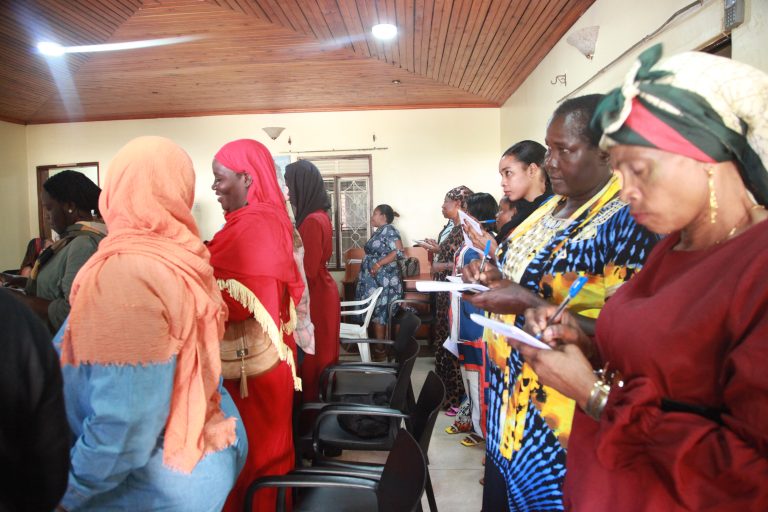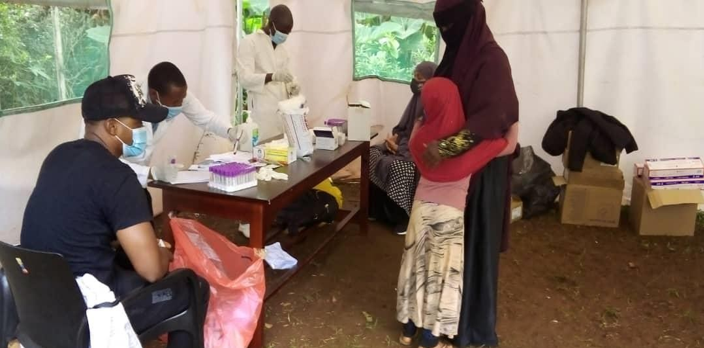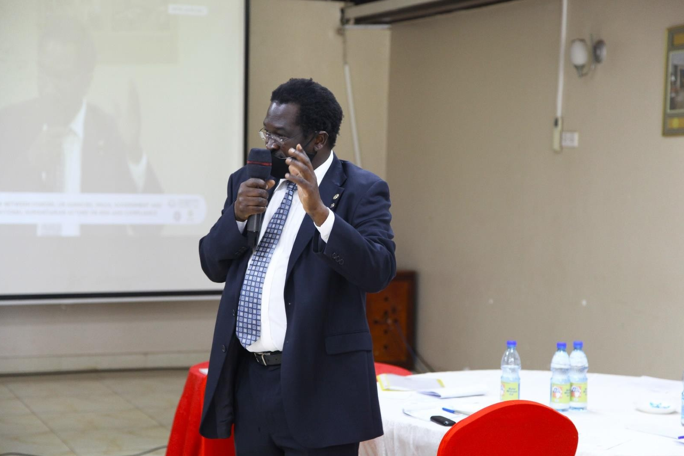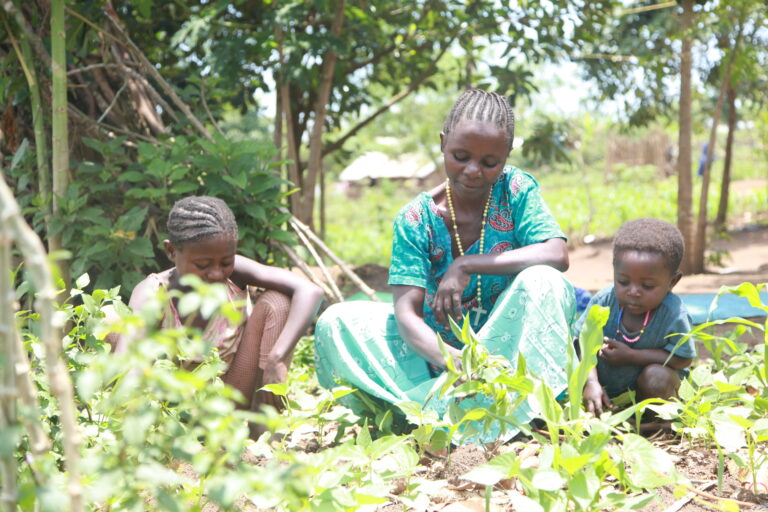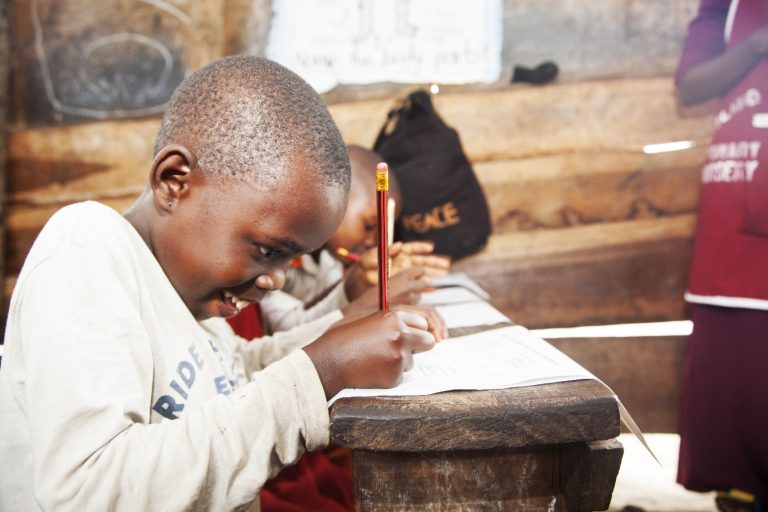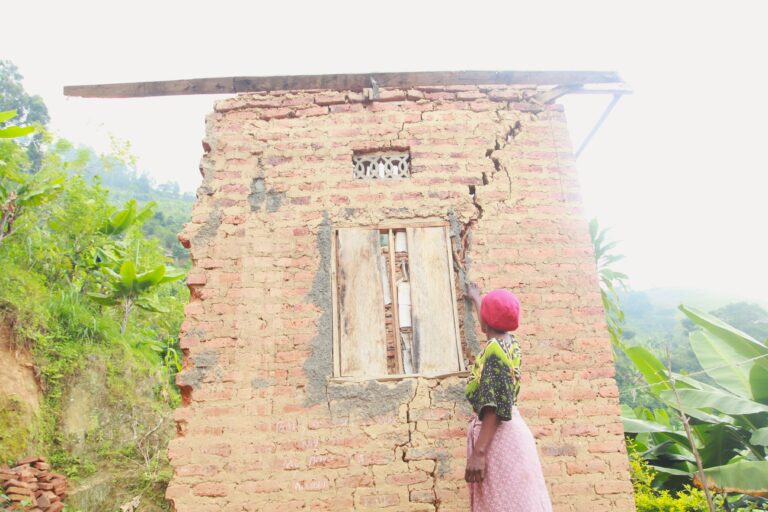Neema’s story
Katusabe Neema is a 17-year-old Congolese, she was born in Democratic Republic of the Congo in the early 2000s, she was forced to flee her home country with her aunt, Tibasanga Bigabwenda, after a violent armed clash, and they crossed Lake Albert on a small boat into Uganda. Neema lost both her parents in the war.
“I lost my parents during the war in Congo and I was taken up by my aunt, I lived in trauma and stayed alone most of my time because I feared everyone else around me.” Neema said.
The next few years were unbelievably tough for the teenager, she had lost almost everything in her life, and her aunt also struggled to feed the entire family. They would eat one meal a day.
“My friend told me about a group of girls that teaches about the safety of adolescent girls and I was interested in joining, I later came to learn that it was called girl shine.” Neema said.
With funds from the European Commission Humanitarian Aid Office through CARE international under the APEAL IV project, Care and Assistance for Forced Migrants (CAFOMI) engages adolescent girls and young women in different sessions (PSS and post-trauma life skills) tailored to their needs, including GBV survivors in their recovery path from trauma through community-based facilitators.
These sessions are instrumental in reducing exposure to specific risks of violence and exploitation. They boost their self-esteem and confidence as they navigate the transition into adulthood, Supported by their caregivers and peers and able to claim their full rights.
Over 600 girls have benefited from the Girl-shine program including 300 who were trained and graduated last year and 385 both old and young adolescents who are being trained in the trauma recovery sessions. 5 girl shine facilitators had a refresher training and are facilitating the sessions in the 5 Women and Girls safe spaces.
There are 51 sessions in total in the Girl Shine Life Skills Curriculum. Some sessions have been tailored for specific age groups or girls with specific life experiences. Girl Shine has been developed for girls between the ages of 10 and 19. They are split between older and younger adolescent groups, giving staff the space to determine age groups based on the development and experience of girls.
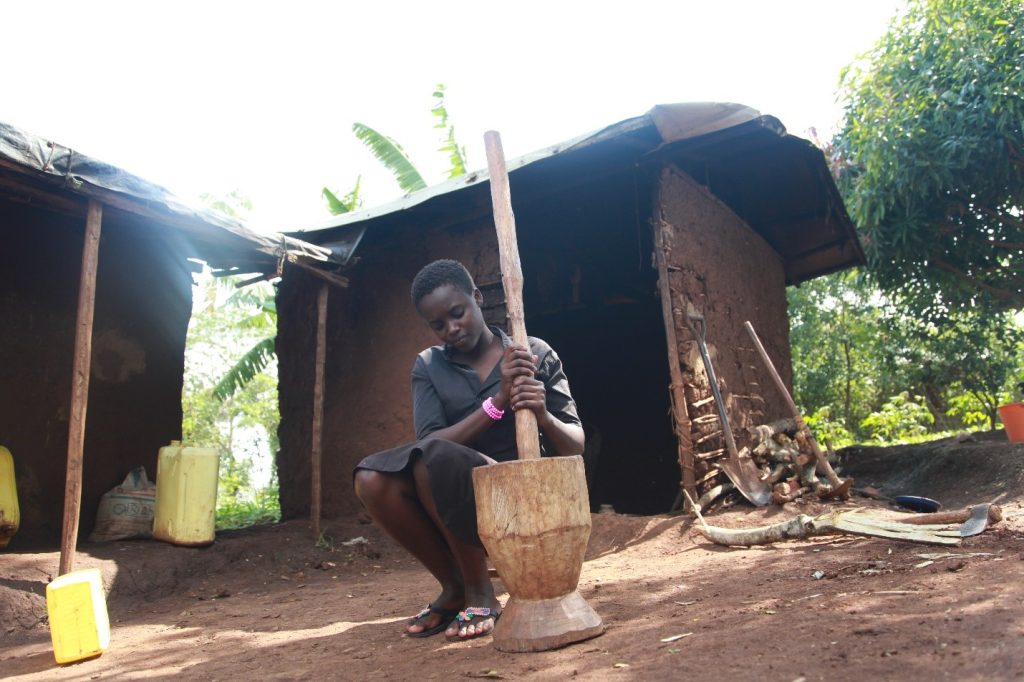
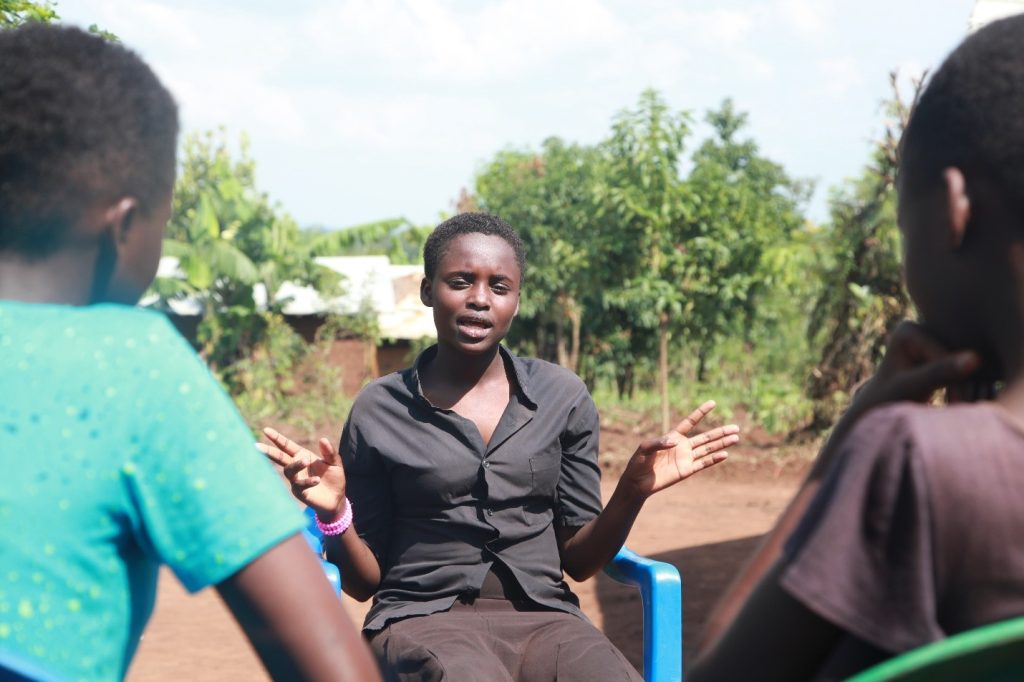
Neema narrated that during the girl shine programme they learnt a lot about issues that affect adolescent girls, including forced marriage, sexual exploitation and abuse. She learnt a skill of public speaking among people, this helped her build her confidence and she can now move around communities teaching about issues affecting girls.
“I can now put my hand up in class after this programe, I go to Karuhinda primary school in P6, I joined girl shine last year when I was in P5, I plan to stay active in the girl shine group and aspire to take up the role of a facilitator at the girl shine centre and later champion girl rights globally.
Her biggest challenge is that she has to walk along distance to access school, she has no school uniform and her aunt struggles to feed the entire family. So they have to eat one meal a day.
Despite feeling secure and welcome, most refugees living in Uganda live in precarious conditions, food insecurity is high and it’s imperative to craft more programs aimed at alleviating poverty, more so children require particular attention in areas of education, health and nutrition.
By Nicholas Shawn Mugarura, Author is MERL & Communications Assistant at CAFOMI.


